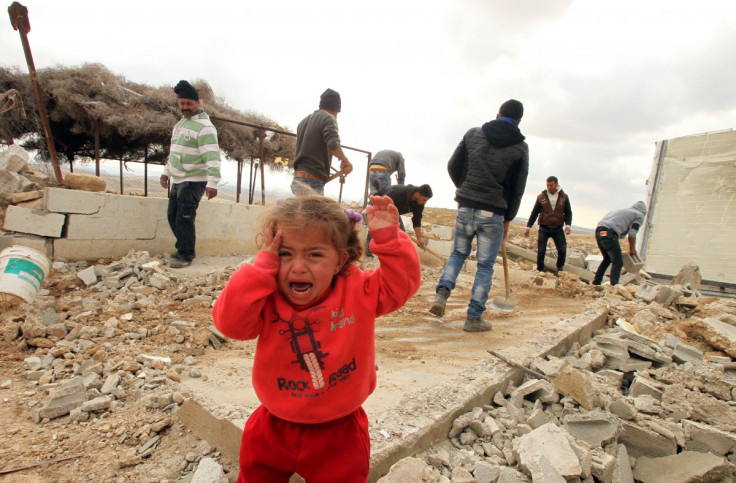Firing Zone 918: Israel bulldozes 23 homes in West Bank leaving 110 people homeless

More than 110 people have been made homeless after Israeli bulldozers moved into two poor West Bank villages and destroyed 23 homes. The decision to raze the homes located in the Palestinian communities of Khirbet Jenbah and Khirbet al-Halawah in the South Hebron Hills means that many families will face winter without a roof over their heads.
The levelling took place in an area known as Firing Zone 918, which was declared a military training site in the late 1970s by Israel. Villagers say they have lived there well before the 1967 occupation. Knesset member Dov Khenin branded it "a sudden and extreme move that will leave many families without a roof over their heads during the winter." Khenin said that he had also written to defence minister Moshe Ya'alon to highlight that the destruction will leave families homeless in the winter months.
The Israeli operation began in the early hours of 2 February and many of the homes are attached to caves, which are also used as shelter. Officials confirmed that the demolitions took place after "illegal structures" and solar panels were erected in a military zone.
A statement from Israel's Coordination of Government Activities in the Territories (COGAT) said that "enforcement measures were taken against illegal structures and solar panels built within a military zone". Some 12 out of 40 properties targeted for destruction were hit before the bulldozing was temporarily postponed until next week after locals obtained a court injunction.
Sarit Michaeli of B'Tselem, an Israeli human rights organisation, said: "This basically means we are back to square one. The government wants to remove them. The residents object."
Villagers gathered their personal belongings and moved them into caves as they sought shelter. As his family moved into a cave, Mahmoud Ahmad Isa told the Guardian that his family was left with no other option. "It is wet [in the cave] but we'll see how we get on. The first thing we need to do is clear the rubble and rebuild," the 30-year-old said. "We don't have any other alternative."
© Copyright IBTimes 2025. All rights reserved.






















